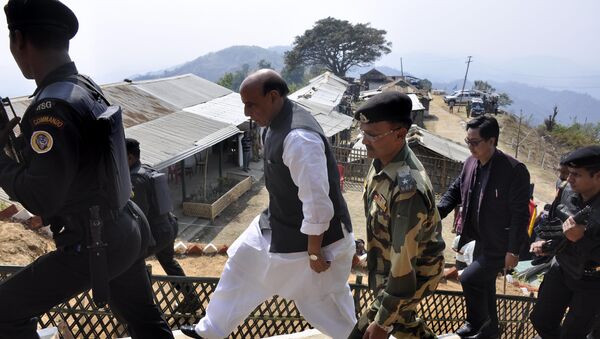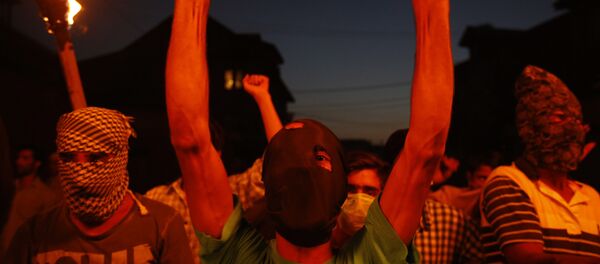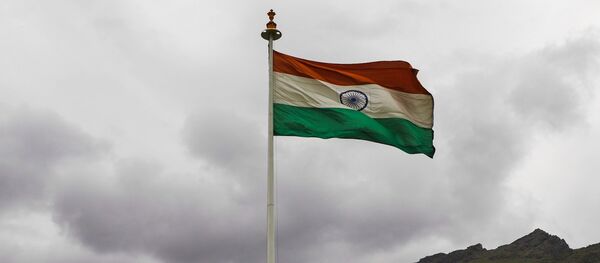The region of Jammu and Kashmir has been disputed between Pakistan and India since the establishment of the two countries in 1947. Earlier this summer, a new wave of protest sparked in Kashmir, following the murder of Burhan Wani, a militant of Hizbul Mujahideen group, by the government forces on July 8th.
A joint delegation of MPs from 20 parties, led by Home Minister Rajnath Singh, has travelled from New Delhi to Kashmir in order to negotiate peace with Kashmir separatist leaders, but the leaders refused to talk with the legislators.
The leader of the separatists Syed Ali shah Geelani even refused to meet with the parliamentarians, despite their efforts to reach Geelani in his residence, where he is held under house arrest for two months already. They were met by protesters shouting slogans; Geelani reportedly saw the delegation members but declined to invite them in.
The group also visited Jammu-Kashmir Liberation Front (JKLF) chief Yaseen Malik, who is under detention at BSF camp in Humama. He met with the delegation but only told them that he will talk when he visits New Delhi.
Another member of the delegation, MP Asaduddin Owaisi attempted to reach Mirwaiz Umar Farooq, the leader of one of the two key factions of the All Parties Hurriyat Conference, a "grassroots coalition" of pro-Pakistan and pro-freedom parties in Jammu and Kashmir. Farooq exchange formal greetings with Owaisi but refused to talk.
Abdul Ghani Bhat, a former leader of All Parties Hurriyat Conference, welcomed the delegation but only to explain why no talks will take place.
"This is a futile exercise. Nothing concrete will happen until or unless India talks to Pakistan on Kashmir. We will not be able to arrive at any solution if India only talks to Kashmiris or Pakistan talks to Kashmiris. We should try and solve this issue which can otherwise result in hostilities between the two neighbouring nations," Bhat said.
His explanation corresponds to a more expressive joint statement made by Geelani, Farooq and Malik. According to the leaders, cited by India Today, "one fails to understand what hope to attach with a delegation which has neither spelled out its mandate for any engagement on a clear agenda."
"These deceitful methods of crisis management… only prolong the sufferings of the people and cannot take the place of a genuine transparent agenda-based dialogue to address the core issue of the peoples` right to self-determination in Jammu and Kashmir," the statement says.
The very visit of the delegation has sparked a new wave of mass protests across Kashmir, that even the curfew and vast amount of law enforcement have so far failed to contain. According to various reports, somewhere between 100 to 250 people have been injured in recent days.
Earlier, up to 9,000 people were injured and 73 were killed in the protests in Kashmir since July 8th.




